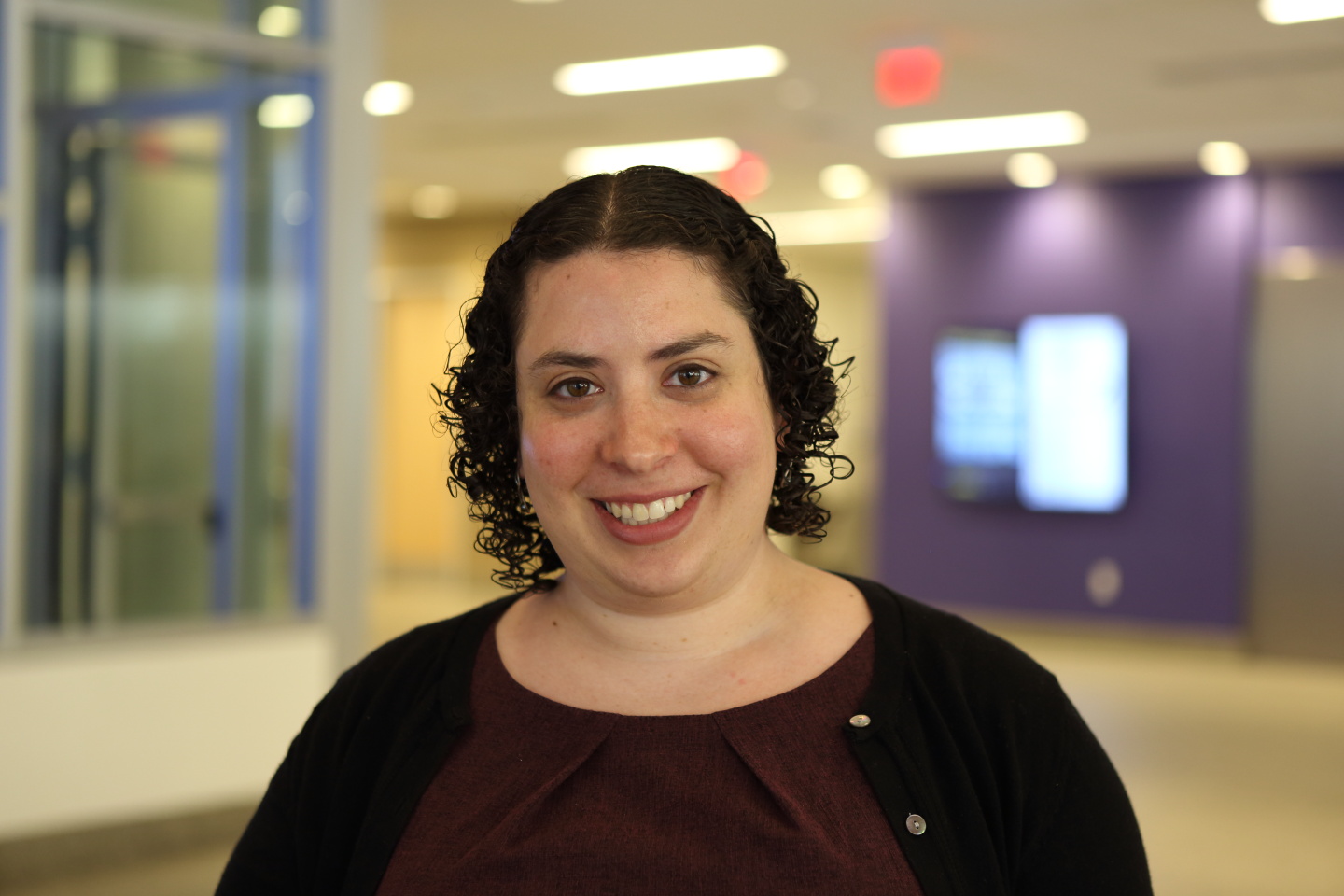Meet Jessica Kirschner, new open educational resources librarian

New to VCU Libraries in Spring semester 2019, Jessica Kirschner supports the VCU  community in its efforts to decrease student costs and increase student success through the use of open and affordable educational materials. Working with partners from across the VCU community, she advocates, educates and assists in the creation of new resources and the location, adoption and adaptation of existing course materials, from library materials to open educational resources.
community in its efforts to decrease student costs and increase student success through the use of open and affordable educational materials. Working with partners from across the VCU community, she advocates, educates and assists in the creation of new resources and the location, adoption and adaptation of existing course materials, from library materials to open educational resources.
She works with liaison and collections librarians on discipline-specific outreach and partners with other university units to provide support for faculty. In partnership with the ALT Lab, Center for Teaching and Learning Excellence, Academic Technologies, and Barnes & Noble at VCU, she also administers the affordable course content awards program. (Faculty are invited to contact her to learn more about open and affordable course materials in their discipline.
What are “open educational resources?”
Higher education is grappling with the fact that textbooks are expensive. While these expenses may be a small part of the total cost of college, they still have a significant effect on students, impacting which classes they take, their grades, and sometimes even if they stay in college.
Open Educational Resources, or OER, are one response to this problem. They’re resources used for teaching that are free to students, eliminating that financial barrier to access and success. Also, OER aren’t bound by traditional copyright restrictions. Instead, they use licenses that permit no-cost access, use, adaptation and distribution with no or limited restrictions. This means that not only can students access the book for free, but they’ll retain that access indefinitely; resources can be freely shared with others; and professors can make changes to the resource to better fit their classes.
It’s also important to note that while we often think of OER as textbooks, they’re actually any resource used for teaching, including videos, interactive content, test banks, slide decks and even online learning platforms, like WeBWork.
What do you do in your role as the Open Educational Resources Librarian?
I oversee the VCU Libraries’ Affordable Course Content Initiative, which focuses on decreasing textbook costs for students. This can be done in two ways. First, through the adoption, adaption, or creation of OER. Second, through the use of library-licensed content. The library already owns a number of ebooks that allow for unlimited numbers of users, making them great course materials.
As the Open Educational Resources Librarian, I’m a resource for faculty who are interested in using affordable course content. I talk to faculty through workshops, department meetings, and other venues to ensure that awareness of open and affordable educational resources permeates both campuses. I also manage our Affordable Course Content Awards, which provide support, including funding, for faculty wishing to adopt, adapt, or create free or open educational resources. I support these projects as needed along with our campus partners. Outside of the awards, I provide support on a one-on-one basis, providing guidance on locating content and understanding licenses, helping to locate specific resources, or providing publishing support for the creation of new resources. I started my career working in academic publishing, so the latter is a particular area of interest of mine and I hope to expand publishing support for OER in the library.
There’s a lot of other little things I do to make sure the Affordable Course Content Initiative runs smoothly, like working with other librarians on library-licensed content, talking with students and working with other OER-focused librarians from across the state. I also help track how much VCU has saved students–more than $2 million already, which is a great start!
What do you think VCU faculty need to know about OER?
OER not only eliminate financial barriers to access and success for students, but they also have many pedagogical advantages. The ability to customize content enables faculty to build the resource around their class and use local examples that their students can better relate to, creating a more engaging learning experience.
For those who are hesitant to use OER, two common concerns are that OER aren’t high quality and the right materials are hard to find. However, studies show that most faculty and students have found that OER have the same, if not better, quality than traditional textbooks. In response to the second concern, I’m here to help faculty find materials that will fit their needs. And if the right materials don’t yet exist, they’re welcome to create new OER, and I’m here to support that, as well.
Are there particular faculty or disciplines you are focused on for fall 2019?
My current goal is to ensure that faculty from both campuses and all disciplines know that I’m here to help with any and all affordable course content questions. That being said, I’m especially interested in working with faculty with large enrollment classes, projects that make innovative use of the digital space to heighten their pedagogical outcomes, or projects which involve students in their creation.
Does your role include outreach to students?
The goal of the Affordable Course Content Initiative is to benefit students and, thus, it would be remiss for them not to be involved. Since students are already aware of the impact that high textbook costs have on their education, my role is to raise their awareness of the no-cost alternatives, from the types of resources available to the benefits of open and affordable course content. To maximize the student body voice and engagement, I’m hoping to involve students in this outreach; we’re hoping to have a student ambassador but I would also love to partner with the Student Government Association.
What’s on the horizon for OER at VCU?
In addition to growing the library’s support for faculty looking to adopt, adapt or create affordable course content, faculty should be aware of the new policy from this past legislative session requiring Virginia institutions to mark low- and no-cost course materials in the course catalog. VCU is still determining how to implement this new requirement, including answering big questions like “what is the threshold for low-cost.” It’s an exciting advancement that will increase transparency and give students more agency as they shape their education at VCU.
Categories Collections, Faculty/Staff, Librarians at Work, Q&A